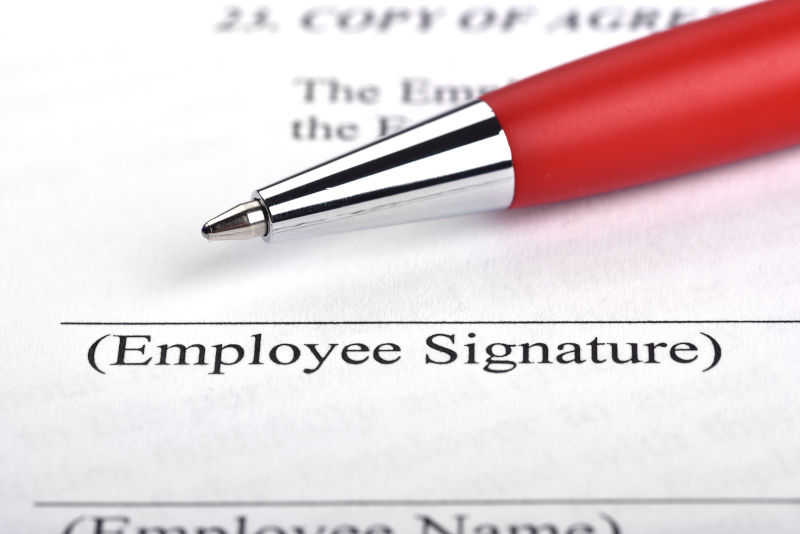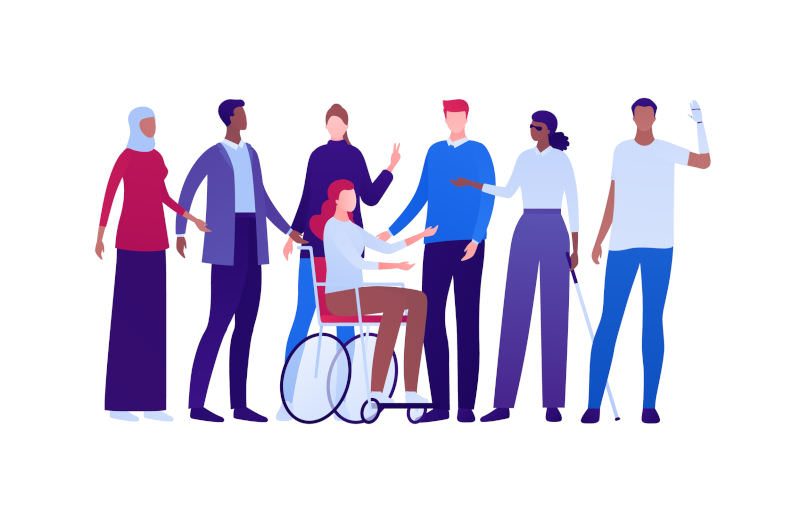**This article was updated in February 2019**
You probably have an idea of what discrimination looks like; sexism, ageism, racism, these are all high-profile forms of discrimination. Many well-known problems in the modern workplace stem from discrimination – for example sex discrimination is at the heart of such issues as gender pay gaps, dress codes and sexual harassment.
But there are other forms of discrimination which may be less obvious to you. Would you recognise all kinds of discrimination that the law protects against? Perhaps you have experienced discrimination in your workplace without being fully aware of your legal position?
In this article, we look at the different kinds of unlawful discrimination and the varied ways in which it can manifest itself.
What is unlawful discrimination?
Unlawful discrimination means treating someone badly, or less favourably than others, on the basis of certain personal attributes. There are nine attributes which are protected by UK law set out in the Equality Act 2010. They are often referred to as ‘protected characteristics’.
The protected characteristics are
- sex / gender
- marital status (including civil partnership)
- pregnancy and maternity
- race, nationality or ethnic / national origins (includes skin colour)
- religion or belief
- disability
- age
- sexual orientation
- gender reassignment
It is against the law to treat someone less favourably than others, on any of the above grounds. This includes how they are treated in the workplace, in connection with a job application, or even after their employment has ended.
Although covered by different legislation, it is also unlawful to treat workers less favourably because they:
- work part-time;
- are on a fixed-term contract; or
- are members of (or otherwise involved with) a trade union.
In general, the law categorises discrimination into four different types. However, special rules apply to disability discrimination.
Direct discrimination
This is the most straightforward type of discrimination. It means treating someone badly because they have one of the protected characteristics. For example, paying lower wages to an employee because he is Polish.
In some cases, it is sufficient for the person at fault to perceive you as having a protected characteristic – regardless of whether you actually have it or not – in order for their conduct to be discriminatory. As such, you will still benefit from legal protection. So, for example, if you are turned down for a job because the person who interviewed you believed you to be gay, it would amount to unlawful direct discrimination even if you weren’t gay.
Similarly, you can also be directly discriminated against because of the protected characteristic of someone connected to you. For example, it would be unlawful direct discrimination to refuse to promote someone on the basis that they had a disabled child. This is called ‘associative discrimination.’
Indirect discrimination
Indirect discrimination occurs when an employer has a requirement (legally known as a ‘provision, criterion or practice’) which is more difficult for staff with a protected characteristic to comply with. As it applies to all staff, however, it cannot be classed as direct discrimination. For example, a requirement that managers must have at least 15 years’ experience on the shop floor would be more difficult for younger workers to comply with compared to older ones. Or a bonus system intended to reward good attendance, but which makes no allowance for maternity leave or for staff who have time off because of a disability.
This kind of discrimination is not automatically unlawful. Indirect discrimination is permitted if it is justified – that means that an employer can show it is a ‘proportionate means of achieving a legitimate aim’. By contrast, direct discrimination is generally not justifiable.
Harassment
Harassment is unwanted conduct related to one of the nine protected characteristics, which has the purpose or the effect of violating the victim’s dignity or of creating an intimidating, hostile, degrading, humiliating or offensive environment for the victim. The perpetrator may not mean to harass the victim, but if it has that effect then (as long as the victim’s perception is reasonable), it is likely to be unlawful. Bullying, when it is connected to a protected characteristic, is unlawful harassment.
Victimisation
Victimisation involved being penalised for having previously taken an action under discrimination legislation. This can be to assert your own rights or to help a colleague do so. An example would be sacking an employee (or taking any other action against them) because they brought a grievance about sexist bullying.
Compensation for unlawful discrimination
Unlike many types of employment claim, in cases of discrimination, there is no limit on the amount of compensation that can be awarded – in some extreme cases compensation run into millions of pounds (if, say, you were a high earner and the discrimination has ruined your career). You can be compensated for any financial loss you have suffered and for injury to feelings.
Bringing an unlawful discrimination claim
To bring a discrimination claim in the Employment Tribunal there is no requirement that you have been employed for a minimum period of time – in fact you might be complaining about being rejected for a job before you start.
If you think you might have been the victim of unlawful discrimination in the workplace you need to act quickly. There are strict time limits for lodging a claim in the Employment Tribunal. You usually have three months from the date of the alleged discriminatory action to commence ACAS Early Conciliation. If your case doesn’t settle during ACAS Early Conciliation, there are further strict deadlines for the submission of the Employment Tribunal claim. There is no longer any cost to submitting a claim to the Employment Tribunal.
If in doubt, ‘stop the clock’ by triggering ACAS Early Conciliation and then contact a specialist employment solicitor.
Truth Legal specialise in employment matters such as discrimination, unfair dismissal, settlement agreements and redundancy. We are often able to conduct cases on the basis of a ‘No Win, No Fee’ agreement.
If you believe you have been the victim of discrimination at work, contact us without delay to discuss your case. We offer free initial consultations with no obligation for you to proceed any further.
Further Reading
From one of the UK’s most read legal blogs.










